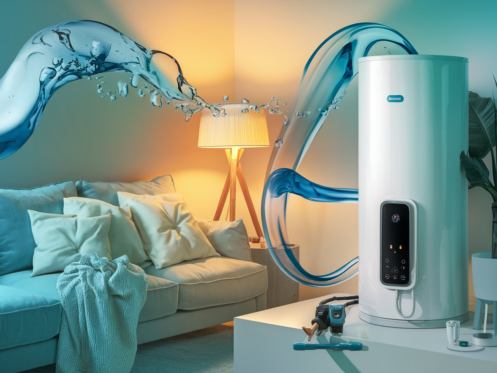A water heater that isn’t getting hot can be a common and frustrating issue for homeowners. Waking up to a cold shower or a dishwasher that isn’t working can disrupt your day. In this article, we will explore the typical reasons why your water heater might not be heating water as it should and provide practical solutions to address these problems. Regular maintenance plays a crucial role in keeping your water heater running efficiently and avoiding unexpected cold spells.
How Does a Water Heater Work?
Understanding how a water heater functions can help you identify why it might not be working correctly. A water heater warms cold water using a heating element or burner and stores it in a tank until needed. When you turn on the hot water tap, heated water is drawn from the top of the tank, while cold water enters the bottom to be heated. This cycle continues to ensure a steady supply of hot water. For more details, you can check this guide on how water heaters work.
Common Reasons for Water Heater Not Getting Hot
It can be very frustrating when your water heater isn’t heating water properly. Here are some common reasons why your hot water heater might not be getting hot enough:
- Thermostat Issues: The thermostat controls the water temperature. If it’s set too low or malfunctioning, your water won’t get hot enough. Checking and adjusting the thermostat can often solve this issue.
- Sediment Build-Up: Over time, minerals from hard water can settle at the bottom of the tank, forming sediment. This build-up can insulate the water from the heating element, reducing efficiency. Regularly flushing the tank can help prevent this problem. For more information, visit our guide on water heater leaking from bottom.
- Faulty Heating Elements: Electric water heaters use elements to heat the water. If these elements are broken or worn out, they won’t heat the water properly. Inspecting and replacing faulty elements can restore your water heater’s performance.
- Incorrectly Set Temperature: Sometimes, the temperature setting might have been inadvertently adjusted. Ensure it’s set to the recommended temperature, usually around 120°F (49°C), to ensure optimal heating.
Maintenance Tips for Hot Water Heater Not Getting Hot
Regular maintenance is key to keeping your water heater running efficiently and preventing it from not getting hot. Here are some simple tips to ensure your water heater remains in top condition:
- Schedule annual inspections: Having a professional inspect your water heater yearly can help spot issues before they become big problems. This proactive approach can save you time and money in the long run. For a comprehensive guide, visit our water heater maintenance guide.
- Check the anode rod: The anode rod helps prevent corrosion inside the tank. Inspect it every few years and replace it if it’s heavily corroded to prolong the life of your water heater.
For more detailed guidance on maintaining your water heater, you can visit Water Heater Maintenance Tips.
Considering Energy-Efficient Water Heater Options
If your water heater consistently struggles to get hot, it might be time to consider upgrading to a more energy-efficient model. Here are some benefits of making the switch:
- Cost savings: Energy-efficient water heaters use less energy, which can reduce your utility bills over time. For tips on replacement costs, check out our water heater replacement cost tips.
- Environmental impact: By using less energy, these models help reduce your carbon footprint, making them a more eco-friendly choice.
- Improved performance: Newer models often offer better heating capabilities and advanced features, ensuring a steady supply of hot water.
To learn more about selecting the right energy-efficient water heater for your home, check out the Department of Energy’s guide.
Remember, regular maintenance and considering energy-efficient options are excellent ways to ensure your water heater remains reliable. For any water heater concerns or upgrades, Quality Cooling and Heating is here to help with expert advice and services.
Conclusion and Ensuring Comfort with Quality Cooling and Heating
In conclusion, a water heater not getting hot can be a frustrating problem, but understanding the common causes and solutions can help you address the issue effectively. Regular maintenance is key to preventing problems like thermostat malfunctions, sediment build-up, and faulty heating elements. Simple steps such as checking thermostat settings, flushing the tank, and inspecting heating elements can often resolve issues with a water heater not heating water.
If persistent problems occur, it might be time to consider upgrading to a more energy-efficient model. Energy-efficient water heaters can save on utility bills and also have a positive environmental impact. For more information on selecting a new water heater, visit the Department of Energy’s guide.
At Quality Cooling and Heating, we are committed to ensuring your home is comfortable and safe. Our professional HVAC and plumbing services are designed to meet all your needs, whether it’s regular maintenance, emergency repairs, or installing a new system. You can trust us to keep your water heater running well. Visit Quality Cooling and Heating for more information on our services.


